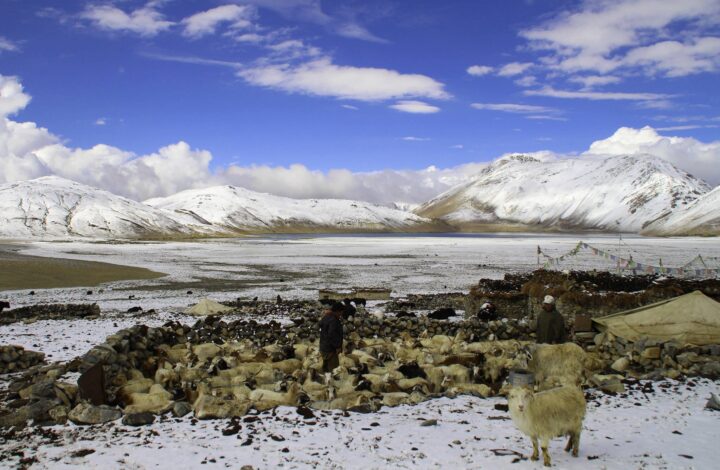Stanzin Namgail
Theme group Fellow

Project title
Indigenous perspectives on the relationship between ecology and belonging in the Himalaya
Research question
How do Changpa Indigenous beliefs shape ecological belonging, and how are these being challenged by modern transitions in the Himalaya?
Project description
This research project explores the profound interconnections between ecology, culture, and belonging within the Changpa pastoralist community of the Ladakh Himalaya. As a member of this Indigenous nomadic group, Stanzin Namgail offers both personal and scholarly perspectives on a worldview in which the land is sacred, more-than-human beings are kin, and survival depends on reciprocal care for fragile high-altitude ecosystems.
Today, however, the community faces a growing crisis of disconnection. Climate change, market forces, and formal education systems that marginalise Indigenous languages and knowledge have all contributed to the weakening of these relationships—particularly among the younger generation. This shift threatens not only cultural continuity but also centuries-old systems of sustainable resource management.
Through ethnographic research, oral history, and participatory methods, Namgail will document how Changpa cosmologies and ecological practices have evolved, and how they continue to shape collective identity. The project will also explore how these traditions might inform broader conversations on ecological ethics, education, and sustainability.
Selected publications
- Namgail, S. et al. “Understanding People’s Relationship with Wildlife in TransHimalayan Folklore.” Frontiers in Environmental Science, 2021.
- Namgail, S. & Bhagat, S.C. (2019). “Film-Tourism: A Case Study of Pangong Lake, Ladakh.” In Tourism Dynamics: Modern Perspectives & Trends, Paradise Press, New Delhi.
- Namgail, S. “Changes in the Institution of Family in the Changpa Community.” Ladakh Studies, 2015.
